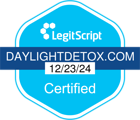Levels of Care
- Home
- Levels of care
At Daylight Recovery Center, we carefully match each individual with the best level of care to meet their unique needs. To begin a strong foundation for recovery, we offer two initial levels of care: detox and residential treatment. Additionally, after completing our program, every patient gains access to our extensive alumni program, providing continued support. While healing and recovery from substance use disorders start at our facility, the journey extends well beyond these initial stages. We remain committed to supporting our patients through every step of their lifelong journey to wellness.
Daylight's Levels of Care
Medical Detox
Medical detox stands as the highest level of care in addiction treatment, providing a safe, structured environment to eliminate drugs, alcohol, and other harmful substances from the body. While many people believe detox can be done at home, in reality, this process is far safer under professional supervision. Attempting detox alone can lead to severe withdrawal symptoms, which vary significantly based on the substance and individual health factors. For instance, withdrawal from alcohol or benzodiazepines carries a heightened risk of seizures.
In medical detox, individuals benefit from 24/7 support by licensed medical professionals, ensuring safety and comfort throughout each step. If withdrawal symptoms arise, our compassionate team is ready to intervene, offering support and, when necessary, medications to relieve discomfort. Each person’s detox timeline is tailored to their unique needs—there’s no one-size-fits-all timeframe for detox. After completing detox, patients then transition into our residential treatment, allowing them to build on their progress and continue their journey toward lasting recovery.
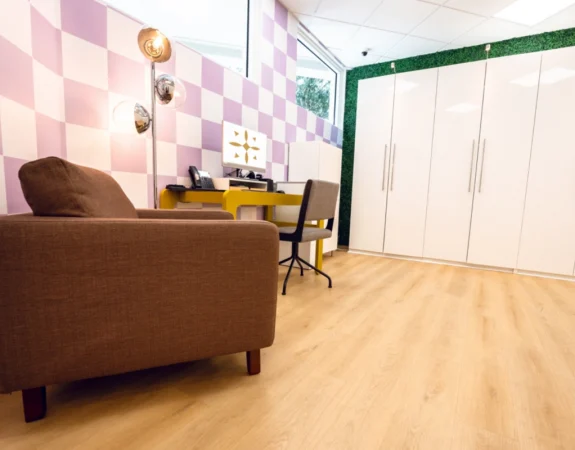
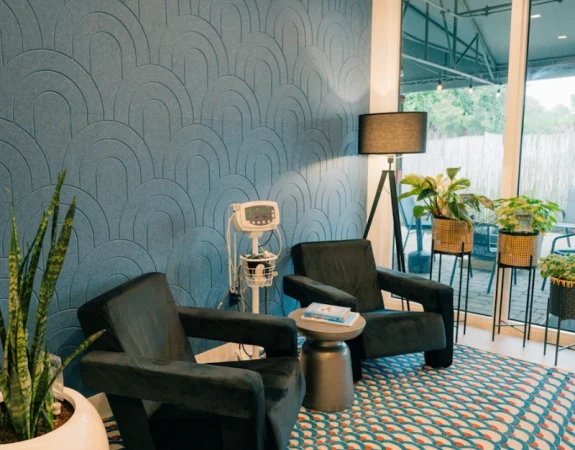
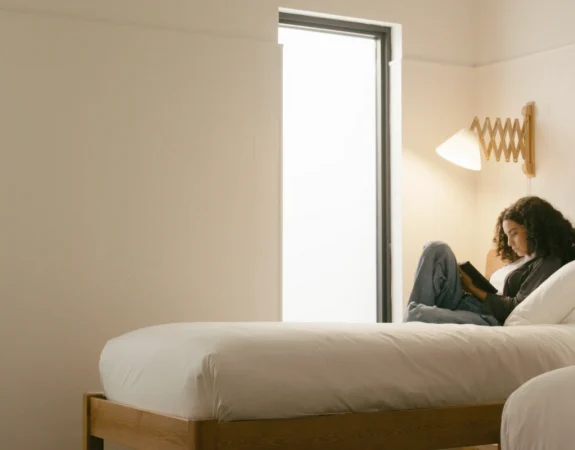
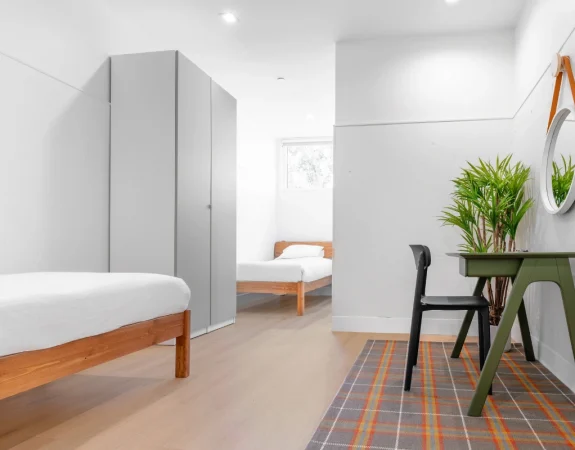
Residential and Inpatient
The inpatient level of care at Daylight Recovery Center provides a strong foundation for individuals beginning their journey to recovery. In a safe and compassionate setting, patients receive 24/7 care, ensuring they always have support through every challenge. This round-the-clock attention is particularly beneficial for those dealing with both addiction and mental health issues. Our dedicated medical team offers unwavering guidance and empathy, especially during the most difficult parts of treatment. Consequently, many of our alumni describe the structured environment of inpatient rehab as life-changing.
At Daylight Recovery Center, we believe in seamlessly blending inpatient and outpatient care to promote long-lasting recovery. Therefore, we recommend starting with inpatient rehab to establish a solid foundation and full-time support at the beginning of the journey. Patients actively engage in therapy and counseling, becoming integral to daily life at our center. By incorporating therapeutic activities into each day, we create a customized healing experience tailored to each individual’s unique needs, ensuring the best opportunity for success as they move forward in their recovery.
Other Levels of Care
Partial Hospitalization Programs
After completing residential treatment, patients typically transition to a Partial Hospitalization Program (PHP), which strikes a balance between residential and outpatient care. This ideal program helps individuals begin to live independently while maintaining the intensity of their addiction treatment. PHP is specifically designed to assist patients in overcoming the hurdles and triggers that have fueled their addiction. They attend structured programs during the day and return home in the evening, allowing them to practice new skills in a safe environment while gradually adjusting to everyday life. Ultimately, PHP provides essential support and guidance, paving the way for lasting recovery.
Intensive Outpatient Programs
Intensive Outpatient Programs (IOPs) are treatment programs designed to address addictions, eating disorders, self-harm and other dependencies that do not require medical detox. Patients suffering from Substance Use Disorders (SUDs) and other addictions have found this level of care helpful on their road to recovery. Many patients are unable to enter residential treatment due to family or work commitments. IOPs enable patients to continue with their day-to-day lives, while receiving treatment for their addiction. IOPs will vary depending on the facility you choose. Patients should expect to dedicate 10-12 hours per week for this level of treatment. It’s important that the patient has a stable living environment free of any drugs, alcohol or other triggers that can set back his/her recovery. Those with severe cases of addiction, or co-occurring disorders, are best suited for residential level of care for their safety.
Non-Clinical Levels of Care
Aftercare
Completing a drug or alcohol residential rehabilitation program is a major accomplishment, but the work doesn’t stop there. Those who have suffered from addiction are at risk for relapse after successfully completing a rehab program. This is because addiction is a chronic disease, meaning it cannot be cured. A structured aftercare plan after completing your rehab program should be in place for this reason. Examples of aftercare services for those recovering from an alcohol or drug addiction include:
• Individual, family and partner/spouse counseling
• Group therapy and family therapy
• Educational programs focusing on the nature of addiction and mental illness
• 12-step programs such as AA and NA
Recovery Housing
Residing in a sober living home is an excellent option for those transitioning back into the community after receiving treatment for drug or alcohol addiction. This gives those in recovery the opportunity to live with others who are also in recovery. Sober living homes provide a safe environment free of drugs and alcohol. Individuals can return to work and their normal day-to-day routines. Everyone residing in a sober living home must abide by the house rules.
Need Help Now?
Our helpful team of admissions coordinators are happy to serve you! Many are in recovery themselves, making the easy to talk and relate with. You may feel alienated by friends and family at this time, but you are not alone. We’re here to help you get through this difficult time and are honored to receive your consideration.


